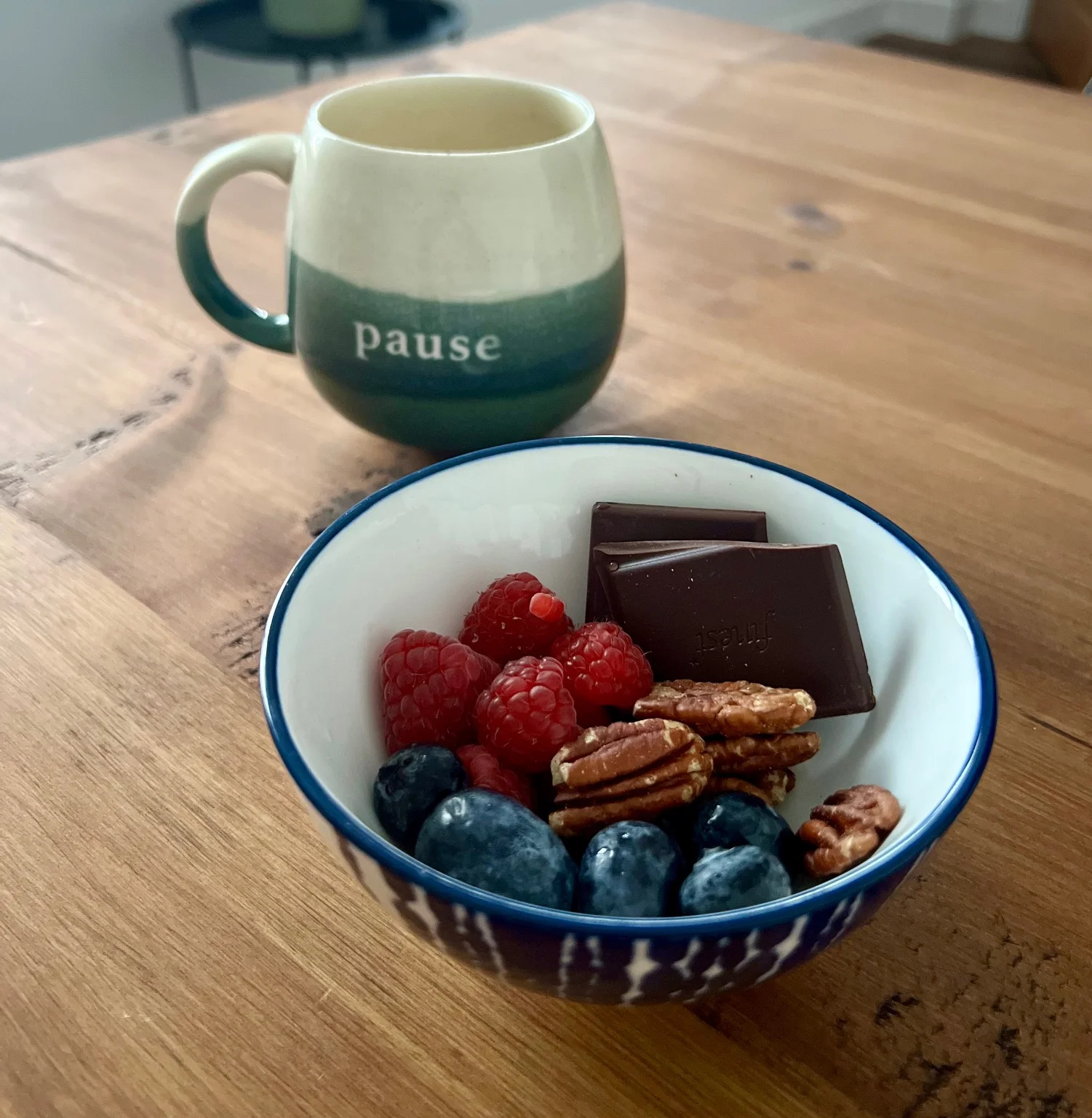As winter approaches and flu season begins, many of you may be considering how to best protect yourselves from seasonal illnesses. Like many others, you might feel the urge to stock up on supplements. However, I want to reassure you that with just a few simple adjustments to your diet, you can ensure your immune system is in excellent shape and ready to defend against any bugs that come your way!
A healthy immune system is essential for good health because it helps the body fight off foreign invaders, such as bacteria and viruses, that can make us sick. There are no specific foods or diets that can ‘boost’ your immunity, despite what you may read online. In fact, we actually don’t want our immune function to be boosted; an overactive immune system can lead to low-grade chronic inflammation. Continue reading to learn how the immune system works and what you can do nutritionally to help it function at its best..
What is your immune system?
Your immune system is your body’s natural defence against harmful invaders such as viruses and pathogens. Our skin provides a physical defence and then we produce a host of immune cells such as lymphocytes or neutrophils to attack unwanted invaders.
Inflammation is a normal function of your immune system, however, problems occur when our immune system goes into overdrive causing chronic inflammation. Research shows us that long-term chronic inflammation underpins many long-term health conditions including type 2 diabetes, heart disease, dementia, and autoimmune conditions such as rheumatoid arthritis.

What role does your gut play in immunity?
Scientists believe our gut microbiome (the community of bacteria and other organisms in your intestines) plays a key role in linking our gut microbiome and long-term health conditions such as type 2 diabetes, heart disease, and some auto-immune conditions such as rheumatoid arthritis.
One way in which our gut microbiome supports our immune system is through the production of short-chain fatty acids. Short-chain fatty acids (SCFA’s) such as Butyric acid are a byproduct of gut bacteria eating the fibre in our diet. SCFA’s including Butyric acid reduce inflammation and help maintain your gut barrier, keeping the bacteria and bacterial toxins in your gut from escaping into your bloodstream and causing an inflammatory response.
How does diet influence your gut microbiome which in turn improves your immune function?
Research indicates that our dietary choices can alter the community of microbes in our digestive tract, significantly affecting both our physical and mental health. Foods that promote gut health include those rich in fibre. These foods encourage the growth of beneficial bacteria, which helps maintain a healthy gut lining and supports our immune system.
Conversely, foods that can harm the gut mainly include processed items. Processed foods are typically high in fats and sugars, and studies show they can negatively impact the gut microbiome. Diets high in processed foods are linked to increased inflammation and a greater risk of poor health. Additionally, alcohol can provoke inflammation in the gut and harm the beneficial bacteria that play a crucial role in maintaining a healthy immune system. While it’s not necessary to abstain completely, it’s important to be mindful of how often and how much you drink.
What can you do to improve your immune system and stave off a cold this winter?
Small changes can make a big impact to combat inflammation and enhance your overall health. By maintaining a balanced gut microbiome and promoting gut health through dietary choices, you can support your body’s natural anti-inflammatory processes and promote overall health.
1) Increase your intake of plant-based foods
Plant-based foods include nuts, seeds, pulses such as chickpeas and lentils, whole grains like quinoa, fruits, vegetables, coffee, and herbs and spices. These foods are packed with nutrients that support a healthy gut. They all contain fiber, which beneficial bacteria thrive on. The more fiber they consume, the more diverse our gut microbiome becomes. As we now know, a healthy gut microbiome supports a robust immune system and overall well-being! Many plant-based foods, including nuts and seeds, are excellent sources of vitamin E, a powerful antioxidant that is crucial in regulating our immune system.
Actionable tip:
Add nuts and seeds to your cereal, bowl yogurt, sprinkle over your salads or curries, or make your own trail mix with pumpkin seeds, sunflower seeds, walnuts, pecan nuts, popcorn, dried apricots, and dark chocolate chips

2) Eat the rainbow
Fruit and vegetables contain numerous antioxidants and polyphenols that protect the body’s cells and support the immune system. They are a great source of Vitamin C, a key nutrient involved in your immune defence system and lowering inflammation.
Actionable tip:
Buy mixed peppers rather than just a red or yellow one
Smoothies can be a great way to boost your intake of fruit and vegetables or simply add 2 different vegetables to your evening meal.
Whilst we are talking about polyphenols I’m sure you would like to know good quality dark chocolate such as 80% is a great source of polyphenols…I’m thinking dark chocolate and raspberries for my post supper polyphenol pop !
3) Find a love for fermented Foods
Fermented foods such as kefir, kimchi, and sauerkraut or drinks such as Kombucha contain live bacteria, “probiotics” and once you have eaten these foods, the probiotic bacteria set up home in your gut, adding variety to the community of bugs already there and improving the health of your gut microbiome.
Actionable tip:
Next time you have a salad add a spoonful of sauerkraut or enjoy a glass of Kombucha

4) Fuel yourself through Fasting
Intermittent fasting is an eating plan that emphasises when you eat rather than the specific foods you consume. Two popular approaches to intermittent fasting are the 5:2 method, where you eat a normal diet for five days each week and fast for two days, and Time-Restricted Eating, which involves eating normally but within a specific time window—for example, fasting for 16 hours and eating within an eight-hour window each day. Evidence suggests that intermittent fasting may have positive effects on gut health, particularly on the lining of the gut and the gut barrier, as well as enhancing your gut microbiome.
Actionable tip:
Most of us already fast whilst overnight whilst asleep so you might want to try extending the fast by a couple of hours to aim for a minimum of a 12-hour fast and then work to increase the fast to 14 to 16 hours overnight. If this feels too much simply increasing the time length from your last meal at night to your first meal the next day will make your bacteria much happier ones.
5) Up your intake of Omega 3 fatty acids
Omega 3 fatty acids have powerful antioxidant properties and recommendations are to aim to have at least one portion of oil rich fish per week. Oily rich fish such as salmon are also a source of Vitamin D which is needed for immune function. During the winter months levels of Vitamin D are low and recommendations are to take a 10ug daily Vitamin D supplement
If you’re vegetarian or vegan be sure to include plant sources of omega 3 fatty acids such as walnuts, linseeds, chia seeds and soy products such as edamame beans or tofu in your diet.
Actionable tip:
Replace good old fashion garden peas with edamame beans
Try tinned mackerel on toast instead of cheese on toast or a ham sandwich

6) Limit Ultra-Processed Foods
While no foods are completely off-limits, research indicates that consuming a high amount of processed foods can negatively affect the immune system. This is because highly processed foods typically contain minimal nutrients and fibre do not support the growth of beneficial gut bacteria, and are often high in refined sugars and unhealthy fats.
Actionable Tip:
Swap processed meats like bacon, sausage and hot dogs for less processed meats like fresh chicken or salmon.
Make your own trail mix using nuts, seeds, chocolate chips and dried fruit for a healthy alternative to cereal bars
Summary
Rome wasn’t built in a day, and the same goes for your gut health. It won’t improve overnight either. Begin with simple changes, such as adding an extra piece of fruit to your daily diet, swapping a bag of crisps for a small handful of mixed nuts, or delaying your breakfast by an hour or two to extend your overnight fast. Each small adjustment contributes to long-term health improvements.
Working with a dietitian can help you prioritise your gut health by providing tailored nutrition advice, leading to significant improvements in your overall well-being. Schedule your appointment today to embark on your journey toward a more energized and healthier version of yourself!
